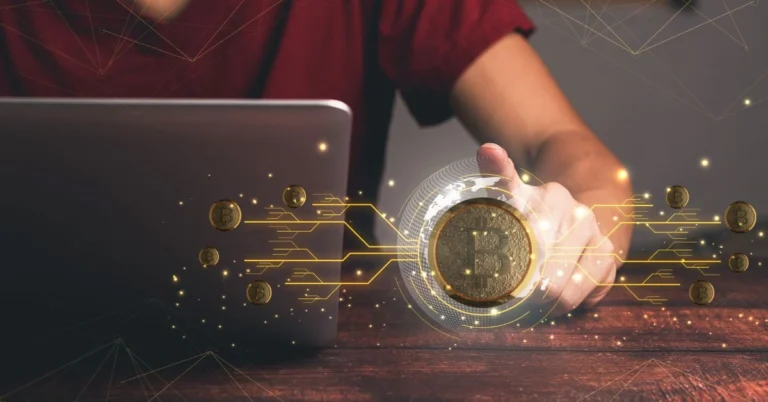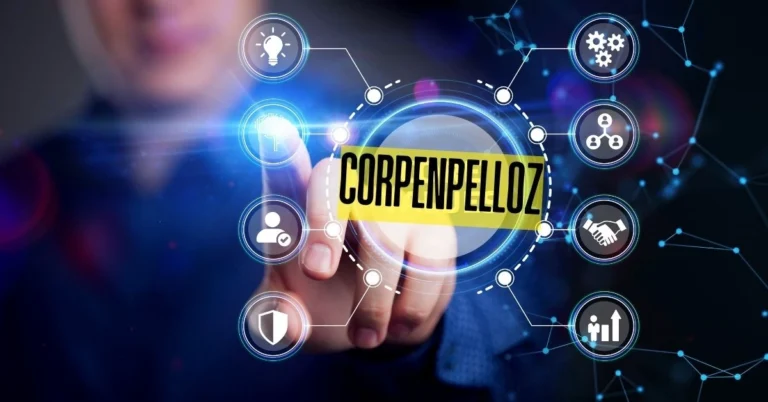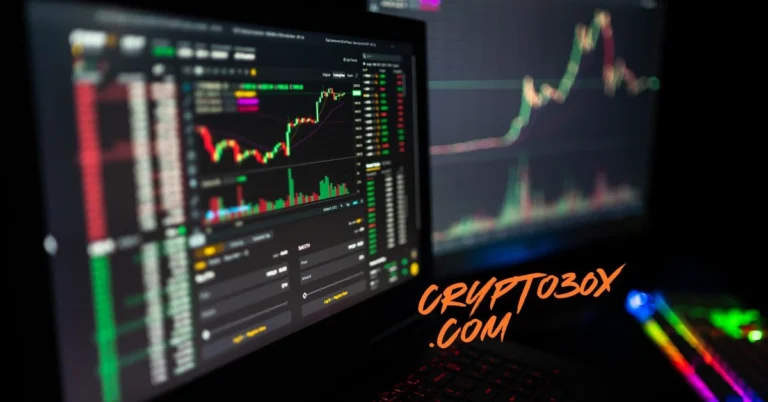eCrypto1.com Crypto Security: Safeguard Your Assets
Cryptocurrency is transforming the way people invest and store value. However, with this new era of digital finance comes increased risk. Cybercriminals are continuously coming up with new ways to breach security and steal digital assets.
Crypto security is more important than ever before. Phishing scams, malware attacks, and security breaches are constantly on the rise. If investors do not implement the right protection, they risk losing their funds permanently.
Many people assume their cryptocurrency is safe when stored in popular exchanges or wallets. However, even well-known platforms have been targeted by hackers. Without the proper security measures, digital assets are always at risk.
This is where ECrypto1.com comes in. It provides cutting-edge crypto protection solutions to secure digital assets. Whether you are new to cryptocurrency or a seasoned investor, securing your crypto assets is crucial.
ECrypto1.com focuses on multi-layered security protocols, including cold storage wallets, multi-factor authentication (MFA), and real-time threat detection. These robust crypto security solutions help users protect their funds from theft.
One of the most common threats is phishing scams. Attackers use fake websites to deceive users into revealing their private keys or passwords. ECrypto1.com educates investors on how to identify and avoid these dangerous scams.
Another major risk involves malware, which can steal funds from digital wallets. Users may unknowingly download malicious software that compromises their security. ECrypto1.com offers advanced tools to detect and block malware, ensuring the safety of crypto holdings.
Security should never be an afterthought in the world of cryptocurrency. Even a small mistake can result in significant losses. With ECrypto1.com, investors can protect their digital currency and trade with peace of mind.
This blog post will dive into the common threats that pose a risk to cryptocurrency security and how ECrypto1.com can help prevent them. Additionally, we will explore best practices for protecting digital assets and ensuring long-term safety.
| Aspect | Facts & Figures | Solutions & Best Practices |
|---|
| Crypto Security Importance | Cybercriminals continuously find new ways to breach security. | Implement strong security measures to protect digital assets. |
| Phishing Scams | Fake websites trick users into revealing private keys. | Verify URLs and never share private keys. |
| Malware & Keyloggers | Malicious software records keystrokes and steals credentials. | Use anti-malware tools and avoid suspicious downloads. |
| Exchange Vulnerabilities | Even top-tier exchanges have been hacked in the past. | Avoid storing large amounts of crypto on exchanges. |
| Ransomware Attacks | Cybercriminals demand payment in cryptocurrency. | Regularly back up data and use security software. |
| Lost Private Keys/Seed Phrases | No password recovery; losing them means permanent loss. | Securely store backups in a safe place. |
| Multi-Factor Authentication (MFA) | Reduces unauthorized access risks. | Enable MFA for all crypto-related accounts. |
| Cold Storage Wallets | Offline storage prevents online hacks. | Use hardware wallets for long-term asset security. |
| Smart Contract Audits | Vulnerable contracts can be exploited by hackers. | Conduct regular smart contract security audits. |
| Real-Time Threat Detection | Identifies suspicious transactions and login attempts. | Use platforms with fraud detection systems. |
| Fund Recovery Assistance | Some platforms offer insurance or recovery support. | ECrypto1.com provides expert guidance for fund protection. |
Common Crypto Security Threats & Risks
The world of cryptocurrency offers vast opportunities but is also filled with risks. Hackers, scammers, and other malicious actors are constantly attempting to exploit vulnerabilities. Understanding these threats is the first step in protecting your digital assets.
Hacking and Phishing Attacks
Hackers regularly target crypto exchanges and wallets, exploiting security flaws to steal funds. These criminals use techniques like brute force attacks or software vulnerabilities to gain access. Once inside, they can withdraw funds before the owner even realizes.
Phishing scams are another major concern in crypto security. Fraudsters create fake websites that resemble legitimate crypto exchanges or wallets. If users mistakenly enter their login details, hackers can steal their credentials and take their funds.
Malware, Ransomware, and Keyloggers
Malware is another form of threat that can infect devices and steal cryptocurrency. Some malware records keystrokes, capturing private keys or passwords. Others modify transactions and send funds to hacker-controlled wallets.
Ransomware attacks are becoming more common in the crypto space. This malicious software locks users out of their devices and demands payment in cryptocurrency to regain access. Without backup, victims may lose their data forever.
Keyloggers also pose a significant risk. They silently monitor and record every keystroke, including login credentials. Hackers can use the captured data to access wallets and steal digital assets.
Exchange Vulnerabilities and Security Breaches
Many crypto users store their digital assets on exchanges for easy access. However, exchanges are frequent targets for cybercriminals. Even top-tier exchanges have been hacked in the past, exposing users to potential loss.
If an exchange is compromised, users may lose all of their funds. Although some exchanges offer insurance for lost assets, others provide no such protection. This is why storing large amounts of cryptocurrency on exchanges is considered risky.
Insider Threats and Social Engineering Scams
Not all threats originate from outside attackers. Insiders—employees or contractors with access to sensitive systems—can exploit their positions to steal funds.
Social engineering scams are also rampant. Fraudsters often impersonate customer support or other trusted figures to manipulate users into revealing private keys or other sensitive information. Once hackers gain access, they can empty wallets with ease.
Risks of Losing Access to Private Keys and Seed Phrases
Unlike traditional banks, cryptocurrency wallets do not offer password recovery services. If you lose your private keys or seed phrases, you lose access to your funds permanently.
Many crypto users store their keys on digital devices or physical storage devices. If these devices are lost, stolen, or damaged, their digital assets become unrecoverable. Proper backup and secure storage are crucial for mitigating this risk.
Stay Alert and Stay Safe
These threats highlight the importance of implementing strong crypto security measures. Without these protections, investors are at risk of losing their digital currency. In the next section, we will discuss how ECrypto1.com provides advanced solutions to help keep your crypto assets safe.
Advanced Security Solutions for Crypto Protection
Protecting digital assets requires a multi-layered approach. The combination of robust security features and best practices can help prevent theft and fraud. Let’s look at some of the most effective methods available today.
Multi-Layered Security Protocols
Multi-layered security is essential to defend against a variety of cyber threats. Encryption, multi-factor authentication (MFA), and secure login systems are key components of a comprehensive security strategy.
MFA adds an additional layer of protection to user accounts. Even if hackers steal a password, they cannot access the account without the second factor, such as a phone code or biometric scan. This greatly reduces the risk of unauthorized access.
Cold Storage Solutions and Offline Asset Protection
Cold storage wallets are one of the safest ways to store cryptocurrency. These wallets are completely offline, which means they are immune to online hacks.
Many cryptocurrency users have lost funds to exchange hacks, but cold storage significantly reduces this risk. ECrypto1.com offers secure cold storage solutions for long-term asset protection, ensuring that only authorized users can access their funds.
Smart Contract Audits and Blockchain Security Measures
Smart contracts are used to automate transactions, but they can contain vulnerabilities that hackers can exploit. Regular smart contract audits are essential to identify and fix potential weaknesses before they can be used to steal funds.
Blockchain security is another critical element. ECrypto1.com monitors blockchain transactions for unusual activities. This enables real-time detection of suspicious actions, helping to prevent fraud before it can occur.
Real-Time Threat Detection and Fraud Prevention
Real-time threat detection is essential in the rapidly evolving crypto landscape. By monitoring accounts and transactions continuously, potential threats can be spotted immediately.
Fraud prevention systems track unusual behavior, such as abnormal withdrawals or login attempts from unfamiliar locations. These systems help alert users and prevent fraud before it can result in a loss.
Insurance Policies and Fund Recovery Assistance
Some platforms offer insurance policies to cover specific types of crypto losses. These policies provide an extra layer of protection for users who may be affected by a breach.
In the unfortunate event of fraud, ECrypto1.com provides fund recovery assistance. Expert support teams guide users through the process of securing their accounts and recovering stolen funds, where possible.
Security You Can Trust
By implementing these advanced crypto protection measures, investors can significantly reduce the risks of hacking and fraud. The security solutions provided by ECrypto1.com offer peace of mind for crypto enthusiasts. In the next section, we will discuss best practices for keeping your digital assets safe.
Best Practices for Protecting Your Crypto Assets
While strong security features are important, personal vigilance is equally essential. Simple mistakes or oversights can expose digital assets to theft. Below are key practices to help secure your cryptocurrency.
Use Hardware Wallets and Cold Storage
Hardware wallets store private keys offline, providing extra protection from cyber threats. Since they are not connected to the internet, they are immune to hacking attempts.
Cold storage wallets are also a secure option for storing cryptocurrency long-term. Storing digital assets offline reduces the risk of online attacks, ensuring they remain safe from cybercriminals.
Enable Multi-Factor Authentication (MFA) and Biometric Security
MFA adds a second layer of protection to accounts, requiring both a password and a secondary verification step. Biometric security, such as fingerprint or facial recognition, makes logging in even more secure.
These features ensure that even if an attacker obtains your password, they cannot access your account without the second verification. ECrypto1.com recommends enabling MFA for all accounts.
Conclusion
In the ever-evolving world of cryptocurrency, securing your digital assets has never been more important. As cybercriminals continually refine their methods of attack, it’s crucial for investors to implement robust protection strategies. From phishing scams to malware and hacking attempts, the risks are numerous and can result in irreversible losses if the right security measures aren’t in place.
Using multi-layered security protocols, cold storage solutions, and tools like multi-factor authentication (MFA), you can significantly reduce your vulnerability to attacks. Additionally, staying educated on the latest threats and practicing vigilant security habits can provide an added layer of defense for your crypto assets.
Remember, crypto security is an ongoing process that requires both technical solutions and cautious behavior. By combining the latest security technologies with best practices, you can ensure that your investments remain safe and your digital assets stay protected in the long term.
What is the best way to store cryptocurrency safely?
The best way to store cryptocurrency is through cold storage wallets, as they are offline and immune to online hacking attempts. Hardware wallets are also highly secure and provide additional protection from cyber threats.
What is multi-factor authentication (MFA) and why is it important?
Multi-factor authentication (MFA) adds an extra layer of protection to your accounts by requiring two or more forms of identification to access them. Even if your password is compromised, the second form of authentication (like a code sent to your phone or biometric scan) makes it much harder for attackers to access your funds.
How can I avoid falling victim to phishing scams?
To avoid phishing scams, always verify the URL of the website you’re visiting, ensure it’s a trusted source, and never share your private keys or passwords with anyone. Be cautious of unsolicited emails or messages that ask for sensitive information.
What is the difference between hot wallets and cold wallets?
Hot wallets are connected to the internet, making them more accessible but also more vulnerable to attacks. Cold wallets, on the other hand, are offline and provide much greater security for long-term storage of digital assets.
What should I do if I lose my private keys or seed phrases?
If you lose your private keys or seed phrases, you may permanently lose access to your cryptocurrency. It is crucial to back up these details in a secure location, such as a physical or encrypted digital backup, to prevent such a scenario.
How can I protect my cryptocurrency from malware or ransomware attacks?
Regularly update your software, use reliable antivirus tools, and avoid downloading unknown files or clicking on suspicious links. Always be cautious about what you install and ensure your device is secure with the latest security patches.
Are there insurance options available for cryptocurrency losses?
Some platforms offer insurance policies that cover specific types of crypto losses, providing an added layer of protection in the event of a security breach or fraud. Always review the terms of any insurance coverage before using it.
How do I detect unusual activity in my crypto account?
Monitor your accounts for any unusual behavior, such as transactions you did not authorize or logins from unfamiliar locations. Many platforms offer real-time threat detection systems to alert you of suspicious activities.







